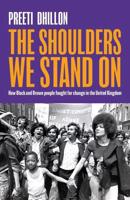Publisher's Synopsis
Dead God Rising provides a completely original explanation for the many religions and myths that have arisen in human society. In particular, it exposes the mechanism by which human religion has been transformed over the millennia. To do this, the book focuses on a number of important and representative case studies in early human society (the Neanderthals and Aboriginal Australians), together with those at the core both of the Neolithic (or agricultural) Transformation in the Fertile Crescent from Egypt to Mesopotamia (Egyptian religion, Zoroastrianism, Judaism, Christianity, Islam) and of the Industrial Transformation in Western Europe and beyond (scientism). This is a study in economic sociology rather than religion more narrowly defined. The book's basic argument is that religion and scientism arose from humanity's attempt to understand and sustain the hidden life-system responsible for human survival and prosperity in a hostile physical and social environment. This hidden life-system, which Professor Snooks calls the "strategic logos," is the book's major discovery. In addition to explaining the central mystery of life, it shows that religion - or "strategic ideology" - is the outcome of a set of rituals by which the Shamans and, later, the priestly philosophers attempted to gain access to, and to influence, the "strategic guardians" - the guardians of the logos - who were misleadingly called "gods" and, eventually, "God." What makes this book distinctive is the unique underlying theory - the "dynamic-strategy" theory - that Professor Snooks has developed to explain the dynamics of human society and of life itself. This realist transdisciplinary theory, which is based on 40 years of systematic observation of the patterns in life in general and human society in particular, extends beyond the work of orthodox sociologists and exposes the flaws in the arguments of the new atheists (such as Richard Dawkins) and Sociobiologists (such as Edward Wilson).










